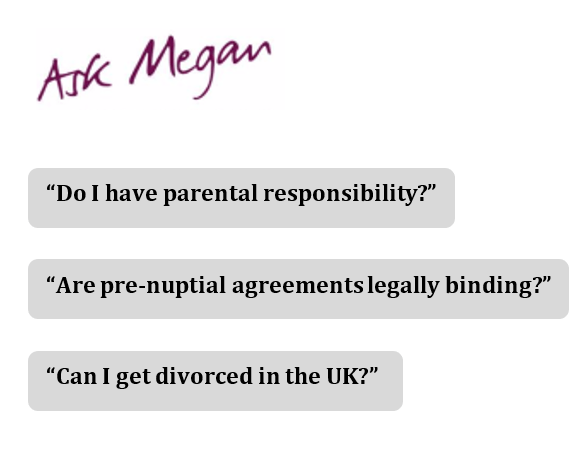
One of the most common questions that our clients ask us is whether they have to wait two years to get a divorce. The answer is…maybe. There are various ways to go about getting a divorce and the time you have to wait depends on your circumstances and the route you go down to end the marriage.
The first thing to consider is how long you’ve actually been married. You cannot start divorce proceedings until you’ve been married for one year. Before the one year mark an annulment is available in certain very limited circumstances. For most people though, a divorce will be their only option and they have to wait until a year from their legal marriage ceremony has elapsed.
If you’ve been married for more than one year and you wish to end the marriage, you can begin divorce proceedings. There is only one ground for divorce in England and Wales: the irretrievable breakdown of the marriage. This must be shown by reliance on one of five facts. These facts are commonly called “grounds for divorce” in the press.
- The first is adultery which must be admitted or proved in line with the legal definition. This is harder to prove than you might think, and many people are reluctant to admit adultery because they fear it will have financial consequences for them although it generally doesn’t. If you want to rely on adultery, you can do it as soon as you are able to divorce. Definitely no waiting for two years with this fact.
- The second fact is behaviour – commonly called “unreasonable behaviour” though the behaviour doesn’t have to be all that unreasonable. The most common examples of behaviour that we see in divorce petitions are fundamental disagreements about money, work-life balance, how to raise children and future plans. If you want to rely on behaviour you can do so straight away – no need to wait two years.
- The third fact – and the most rarely used – is desertion and this one does need a two year wait to rely on it. Desertion is when your partner has left you for at least two of the past two and a half years without your consent, without a good reason and with the intention of ending the relationship. The reason this is so rarely used is that it is hard to prove a person’s intent. Why risk a petition failing because you can’t show their intent when you can just base it on their behaviour (i.e. them leaving you for a significant chunk of time against your wishes)? It costs time and money to amend a divorce petition that can’t proceed because a fact can’t be proved so most people take the view that behaviour is a safer option than desertion.
- The fourth fact is two years’ separation with the consent of the other party. This one does require a two year wait but that time period does not always start when you might expect.
A great many of our clients tell us they haven’t been separated for anything like two years so are surprised when we tell them they maybe have been. The Court will readily accept that you have been separated but living under the same roof with your spouse. Why? The realities of modern living – mainly property prices – mean it’s not as simple as picking up your things and moving to a new home. Most families’ finances are stretched running one household: they simply can’t set up and run another one for two years. If you’ve been living more like flatmates for a period then you could be regarded as being separated. We look for things like shopping for food and cooking separately, doing laundry separately, sleeping in separate beds (though this is not always the case due to space issues), taking separate holidays and socialising separately amongst other things. So, while this fact does require a period of two years to elapse, the clock doesn’t necessarily start ticking when you might expect.
- The fifth and final fact is five years’ separation (with consent not required from the other party). As with two years’ separation, the timing of the separation can begin even while you’re under the same roof.
It’s clear from the information above that you don’t necessarily need to wait two years before you start divorce proceedings so why do some people do it? The answer is simple, desertion and the separation facts don’t require fault or blame to be placed at the other person’s door in the same way as adultery and behaviour do. This can make a for a more amicable process which is often the highest priority for clients. For others though, the priority is speed and they want to get the ball rolling straight away so they choose to base their divorces on adultery of behaviour. There is no right or wrong answer a to which fact is right for any particular client. That’s why we work with our clients and talk to them in detail about the pros and cons of each fact, giving them advice tailored to their own unique circumstances and aims.
If you’re thinking about divorce and aren’t sure what to base it on or have any questions at all about divorce or family law matters, you can book a free confidential consultation with a Grayfords solicitor to discuss your case.
This article was written by Megan Bennie and Sarah Arifi.

